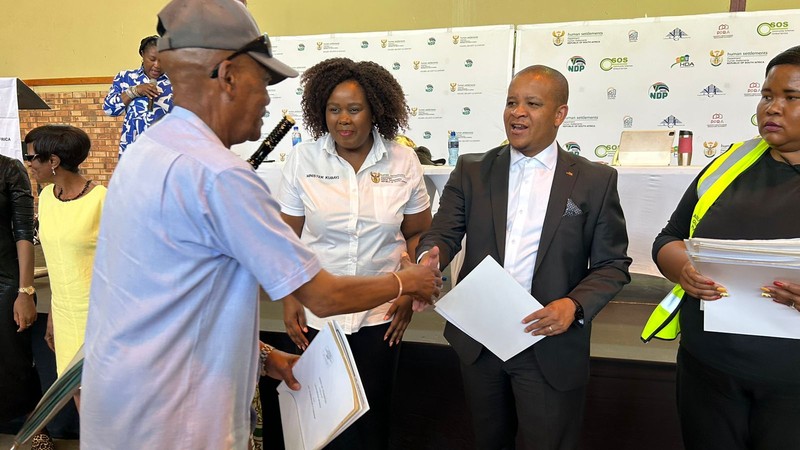
TSHWANE SOCIAL HOUSING PROJECT NEARING COMPLETION
The Tshwane multimillion-rand mixed-use complex is nearing completion mayoral committee member Ofentse Madzebatela has said.
Speaking to “The Star” on Tuesday, Madzebatela said he was happy with the progress and that finally the municipality was ready for tenants in phase 1 and 2.
“We are happy with what has taken place, 1 200 units have been completed, what is left now is the snack work around the pavement and completion of the basketball and soccer field for kids to be able to play. The nicest thing about this is that we are creating a community in this area. The project, like I said, it’s 99% complete,” Madzebatela said.
The social housing development offers low-cost rental to qualifying residents of Tshwane who fall in the income band of R1 850 to R22 000.
Madzebatela said the municipality had received more than 4 000 applications. There was a huge demand from applicants in the primary category (those on the lower end of the income band).
“We also having a mix kind of arrangement were we subsidising as well, so we need all categories to be filled up. Right now the majority of the space we have is for those who earn R11 000 to R22 000, that’s where we have a lot of space.”
He said the municipality realised that a lot of South Africans in that bracket were in debt, which disqualified them.
On April 10, Minister of Human Settlements Mmamoloko Kubayi and her deputy, Pam Tshwete, gave the approved tenants keys to their new Marabastaad Townlands Housing Project homes.
At the time, the minister encouraged residents not to look at the Townlands as a permanent solution but as a stepping stone to home ownership.
Kubayi called on tenants and the government to work together to create and maintain additional projects of this nature.
The Tshwane metro built about 1 200 units to accommodate low-income earners and most of now occupied. This has been hailed as one of the country’s biggest social housing ventures.
The project has been dogged by delays caused by protests by disgruntled residents, and the Covid-19 pandemic, which had financial implications for the construction.
In phase 1, 232 tenants were allocated units and now live closer to economic opportunities that give them easier access to employment, public transport, shopping malls and sports facilities.
According to a World Bank study, the reduction of travel time to work greatly benefited workers who spent 70% of their income on transport.
The Star
2024-04-16T15:30:33Z dg43tfdfdgfd